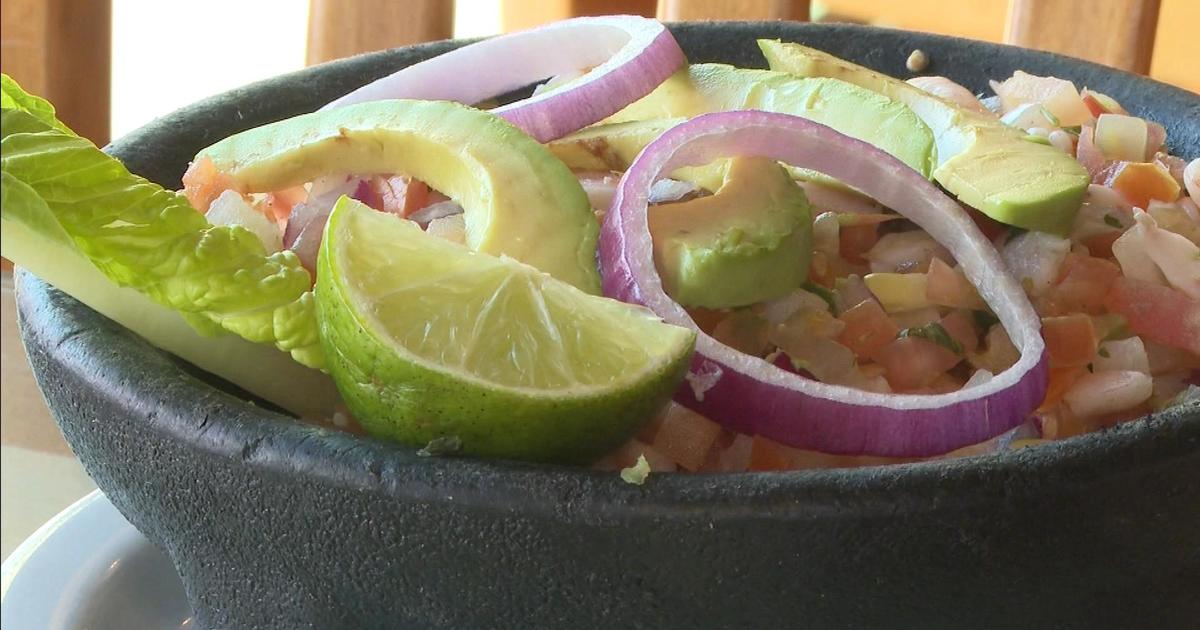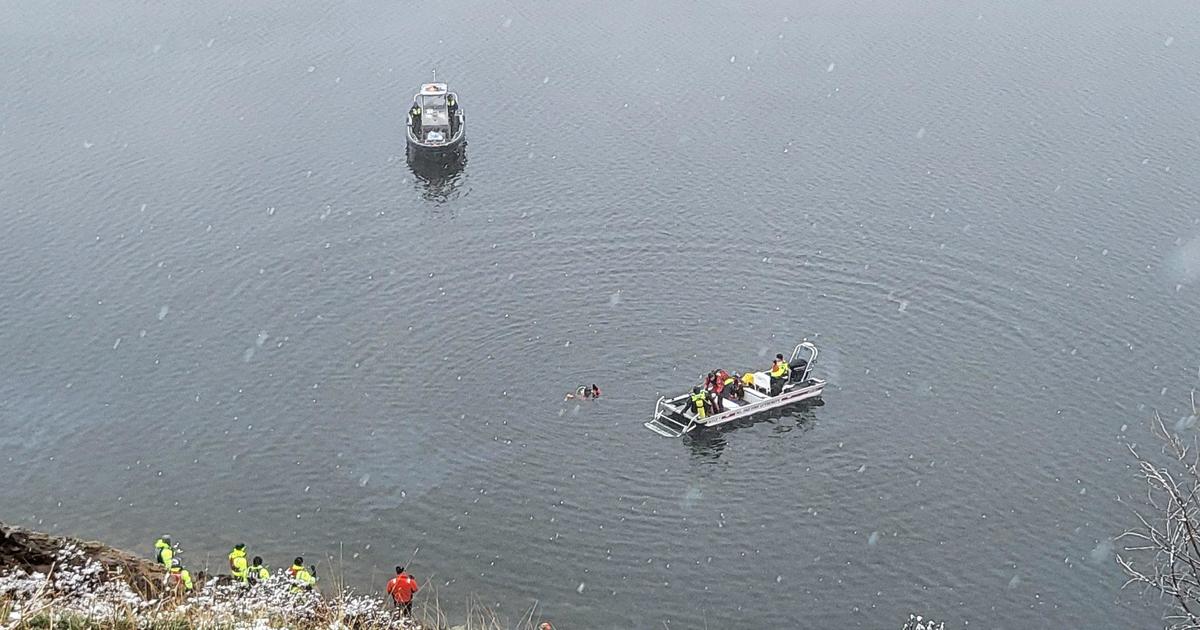FDA Cites Dirty Equipment At Jensen Farms For Listeria Outbreak
WASHINGTON (AP/CBS4) - Pools of water on the floor and old, hard-to-clean equipment at a Colorado farm's cantaloupe packing facility were probably to blame for the deadliest outbreak of foodborne illness in 25 years, the Food and Drug Administration said Wednesday.
Government investigators found positive samples of listeria bacteria on equipment in the Jensen Farms packing facility and on fruit that had been held there.
"The cleaning and sanitizing procedures inside the facility were inadequate to remove the pathogens," Devin Koontz with the FDA told CBS4.
In a six-page assessment of the conditions at the farm based on investigators' visits in late September, the FDA said Jensen Farms had recently purchased used equipment that was corroded, dirty and hard to clean. The packing facility floors were also constructed so they were hard to clean, so pools of water potentially harboring the bacteria formed close to the packing equipment.
LINK: Listeria Outbreak Resources
The equipment -- purchased in July, the same month the outbreak started -- was previously used to wash and dry potatoes, the agency said, and the listeria "could have been introduced as a result of past use of the equipment," according to the report.
FDA officials said that they are not concerned about similar listeria contamination in the potatoes that were previously processed on the equipment because those vegetables are rarely eaten raw. Cooking can kill the bacteria.
The agency said the contamination likely happened in the packing house, but the way the cantaloupes were cooled after being picked may have also contributed to listeria growth. The farm did not use a process called "pre-cooling" that is designed to remove some condensation, thus creating moist conditions on the cantaloupe rind that are ideal for listeria bacteria growth. Listeria grows in cool environments, unlike most pathogens.
FDA said that samples of cantaloupes in Jensen Farms' fields were negative for listeria, but bacteria coming off the field may have initially introduced the pathogen into the open-air packing house, where it then spread. Listeria contamination often comes from animal feces or decaying vegetation.
Another possible source of contamination was a truck that frequently hauled cantaloupe to a cattle operation and was parked near the packing house. Contamination could have come from the cattle operation and then tracked into the house by people or equipment, the report said.
"We primarly found it on product that was in the packing facility as well as on the washing and drying equipment that was used," said FDA spokesman Devin Koontz.
The Centers for Disease Control and Prevention says 123 people have been sickened in the outbreak, including the 25 who died. It is the deadliest known outbreak of foodborne illness in the U.S. since an outbreak of listeria in Mexican-style cheese in 1985.
"Incidents like this should not happen if we had the right protocol in place," Colorado Agriculture Commissioner John Salazar said.
The tainted fruit, which Jensen Farms recalled in mid-September, should be off store shelves by now. But the number of illnesses may continue to grow -- symptoms of listeria can take up to two months to appear. Barbara Mahon of the CDC said that the illnesses peaked from mid-August through September, but that the government would continue to monitor the situation for at least another two weeks.
"As a long-time food safety advocate and a representative of Colorado, the findings released today by the FDA regarding the listeria outbreak are particularly disturbing. They seem to reveal that Jensen Farms' agricultural and management practices may have been inadequate, potentially resulting in the introduction, spread, and growth of the toxic listeria contamination in the Farms' cantaloupe. The systemic problems uncovered by the FDA – from facility design to equipment usage to transportation protocols – underscore the critical need for our committee to conduct a thorough investigation of this outbreak, and how such contaminations can be avoided in the future," said Rep. Diana DeGette, D-Colorado.
"The cleaning and sanitizing procedures inside the facility were inadequate to remove the pathogens," said Koontz.
The CDC on Tuesday confirmed a sixth death in Colorado and a second in New York. Indiana, Kansas, Louisiana, Maryland, Missouri, Nebraska, New Mexico, Oklahoma, Texas and Wyoming have also reported deaths.
FDA officials said Wednesday that the agency has never visited the farm to do an inspection. But that would likely change under a new food safety law signed by President Barack Obama earlier this year that boosts the number of inspections the FDA conducts annually. Currently, the agency may only visit a food facility every five or 10 years, at the most.
FDA officials said they have visited many food facilities over the years and the conditions at Jensen Farms were unique.
"There is no reason to believe these practices are indicative of practices throughout the industry," said Sherri McGarry, a senior officer in FDA's office of foods.
McGarry said the agency has sent the company a warning letter and is still considering what enforcement actions it will take. Officials said the farm had cooperated in all aspects of the recall and investigation.
"I think the farm is totally to blame for 25 deaths of people and everybody that has been affected," said Jennifer Exley, whose father Herbert Stevens is recovering from listeria. "I think they knew it was unsanitary."
Messages left for the farm's owners were not immediately returned.
(TM and © Copyright 2011 CBS Radio Inc. and its relevant subsidiaries. CBS RADIO and EYE Logo TM and Copyright 2010 CBS Broadcasting Inc. Used under license. All Rights Reserved. This material may not be published, broadcast, rewritten, or redistributed. The Associated Press contributed to this report.)
Below is a news release from the FDA:
FDA confirms Listeria monocytogenes on Jensen Farms' Rocky Ford-brand cantaloupes
Jensen Farms voluntarily recalled product last week in response to outbreak
Today, the Food and Drug Administration announced that it found Listeria monocytogenes in samples of Jensen Farms' Rocky Ford-brand cantaloupe taken from a Denver-area store and on samples taken from equipment and cantaloupe at the Jensen Farms' packing facility. Tests confirmed that the Listeria monocytogenes found in the samples matches one of the three different strains of Listeria monocytogenes associated with the multi-state outbreak of listeriosis.
Jensen Farms recalled its Rocky Ford-brand cantaloupes on Sept. 14 in response to the multi-state outbreak of listeriosis. Cantaloupes from other farms in Colorado, including farms in the Rocky Ford growing area, have not been linked to this outbreak.
To date, the Centers for Diseases Control and Prevention reports that 35 people in 10 states, including four deaths, have been infected with the outbreak strains of Listeria monocytogenes.
FDA investigators collected cantaloupes and environmental samples from a Denver-area store and from the Jensen Farms packing facility in Granada, Colo., after Colorado state health officials identified Jensen Farms' Rocky Ford-brand cantaloupes as the common food eaten by several listeriosis patients.
Jensen Farms, based in Holly, Colo., is cooperating with the FDA and state officials in Colorado. The company is working with federal and state authorities to ensure the recalled cantaloupes are promptly removed from the marketplace. Jensen Farms is also helping federal and state authorities determine the root cause of how the cantaloupes became contaminated.
The FDA's root-cause investigation and environmental assessment includes the on-site expertise of FDA and state of Colorado microbiologists, environmental health specialists, veterinarians and investigative officers. The experts conducting the assessment will analyze the evidence, determine the most likely cause of contamination and identify potential controls to help prevent contamination in the future. The FDA will use the findings to help inform agency policy regarding Listeria and produce food safety best practices.
Jensen Farms shipped the recalled cantaloupes from July 29 through Sept. 10 to at least 17 states with possible further distribution.
The FDA advises consumers—especially persons at high risk for listeriosis, including older adults, persons with weakened immune systems and pregnant women—not to eat the recalled cantaloupes and to throw them away. Do not try to wash the harmful bacteria off the cantaloupe as contamination may be both on the inside and outside of the cantaloupe. Cutting, slicing and dicing may also transfer harmful bacteria from the fruit's surface to the fruit's flesh.
For additional information about the recalled products, including product labels: http://www.fda.gov/Safety/Recalls/ucm271879.htm.
For additional information about the outbreak:
FDA warns consumers not to eat Rocky Ford Cantaloupes shipped by Jensen Farms
CDC Investigation on multi-state listeriosis outbreak
FoodSafety.gov on Listeria
The FDA, an agency within the U.S. Department of Health and Human Services, protects the public health by assuring the safety, effectiveness, and security of human and veterinary drugs, vaccines and other biological products for human use, and medical devices. The agency also is responsible for the safety and security of our nation's food supply, cosmetics, dietary supplements, products that give off electronic radiation, and for regulating tobacco products.



